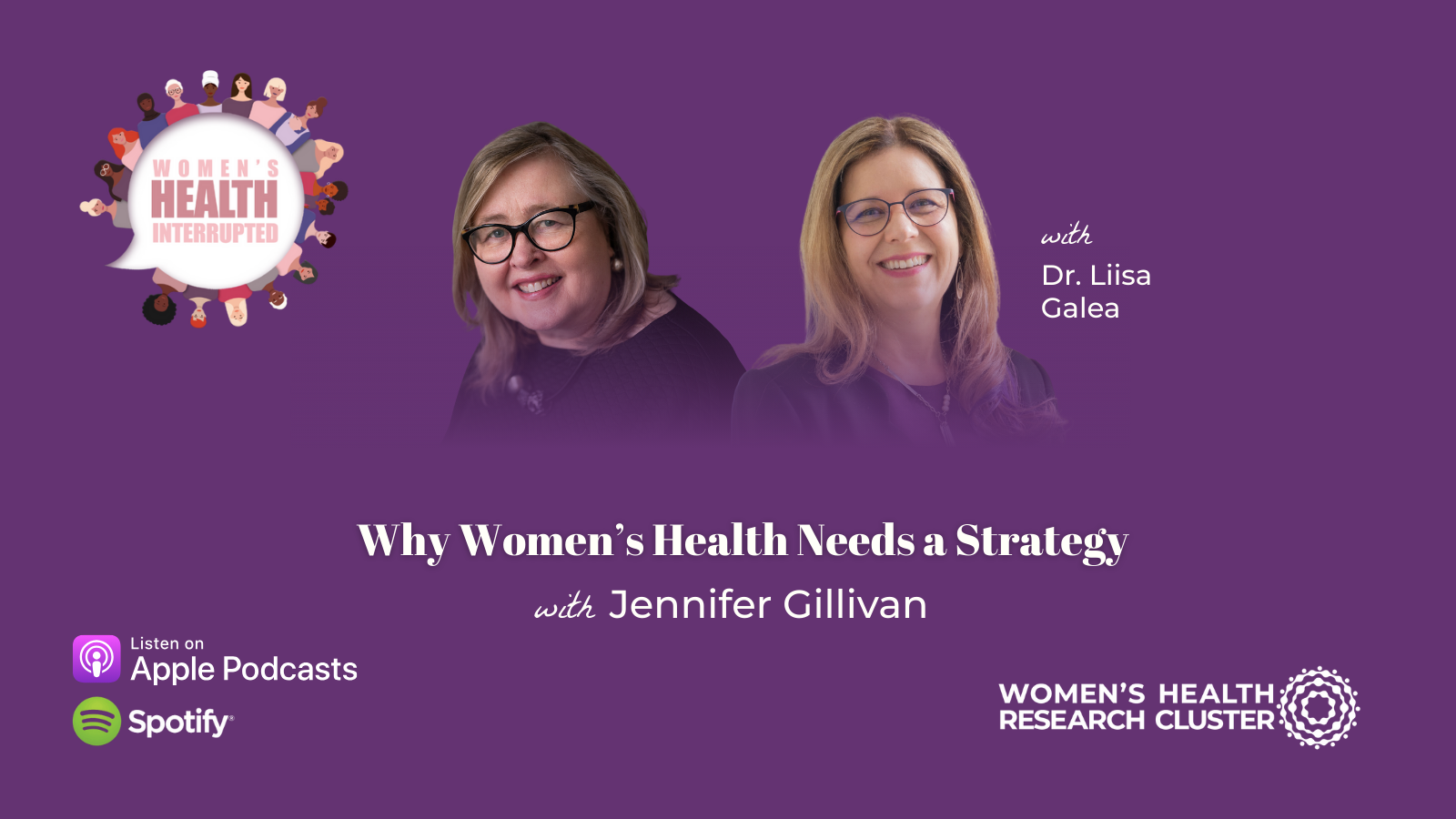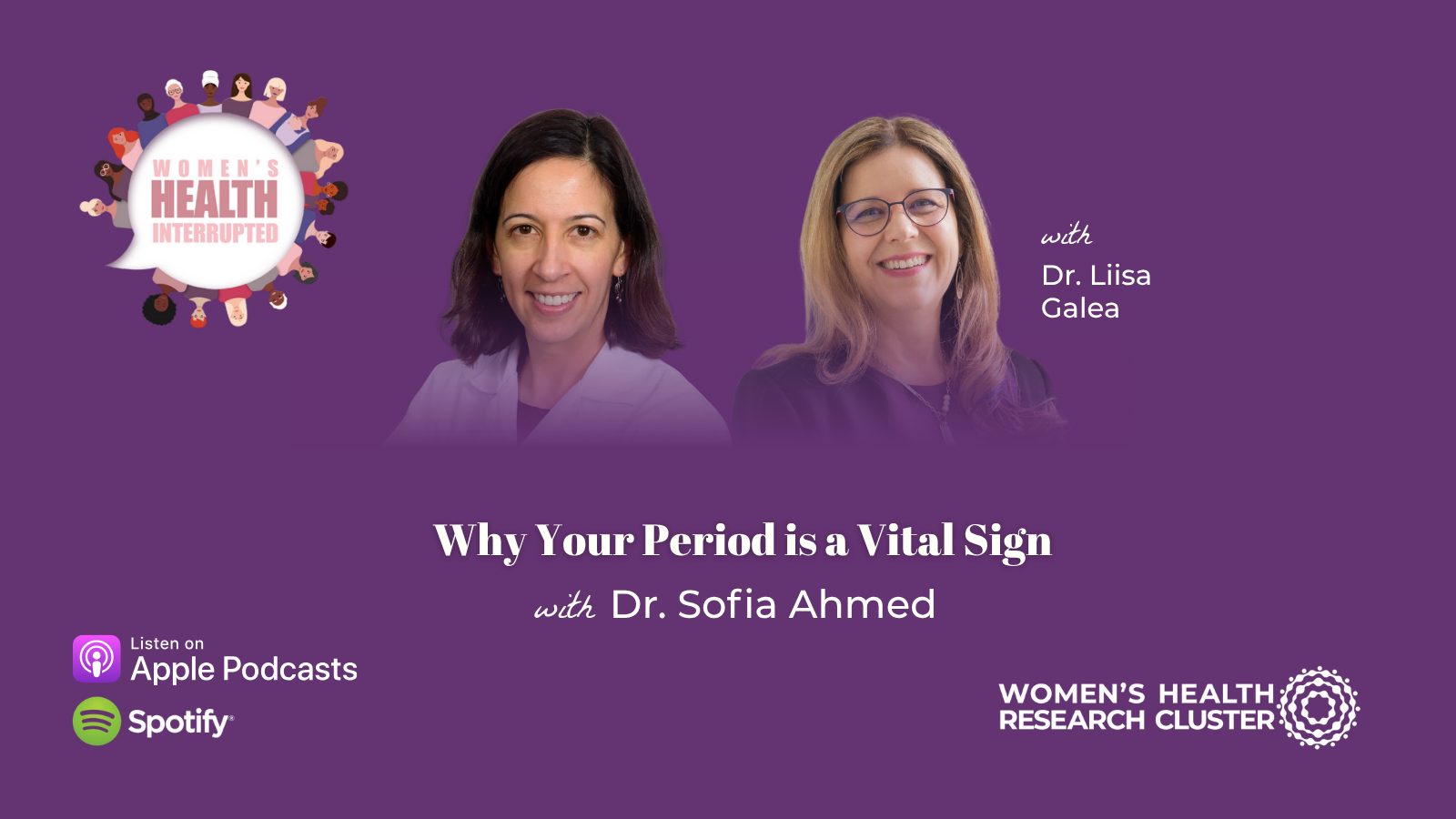Women’s Health Interrupted is a podcast that dives into four key themes shaping women’s health: general health and wellness, brain health, socio-cultural determinants of health, and politics, policy, and advocacy. Each season, we explore these themes with experts, offering insights into women’s unique health challenges. From the effects of income inequality on relationships to the impact of menopause on brain health, our goal is to spark conversations that uncover new truths about the different forces impacting women’s health.
This podcast is for everyone—not just women—, as it aims to broaden our collective understanding about women’s health and drive meaningful change. You can listen to all episodes of our podcast below, or wherever you get your podcasts!
Politics, Policy, and Advocacy
We examine how policies shape women’s health, spotlighting both barriers and progress. Learn from advocates working for policy change and explore how politics can both hinder and drive improvements in women’s health.
Brain Health
This theme explores gender-specific brain health risks and protective factors, focusing on conditions like Alzheimer’s and mental health. We showcase cutting-edge research that highlights the unique challenges women face in brain health.
General Health and Wellness
This theme covers a range of topics related to women’s everyday physical and mental well-being, from reproductive health to fitness. We offer insights into practical health challenges that affect women daily.
Socio-Cultural Determinants of Health
We delve into how factors like income, race, and education affect women’s health outcomes. By addressing these non-medical influences, we aim to shine a light on health disparities and possible solutions.
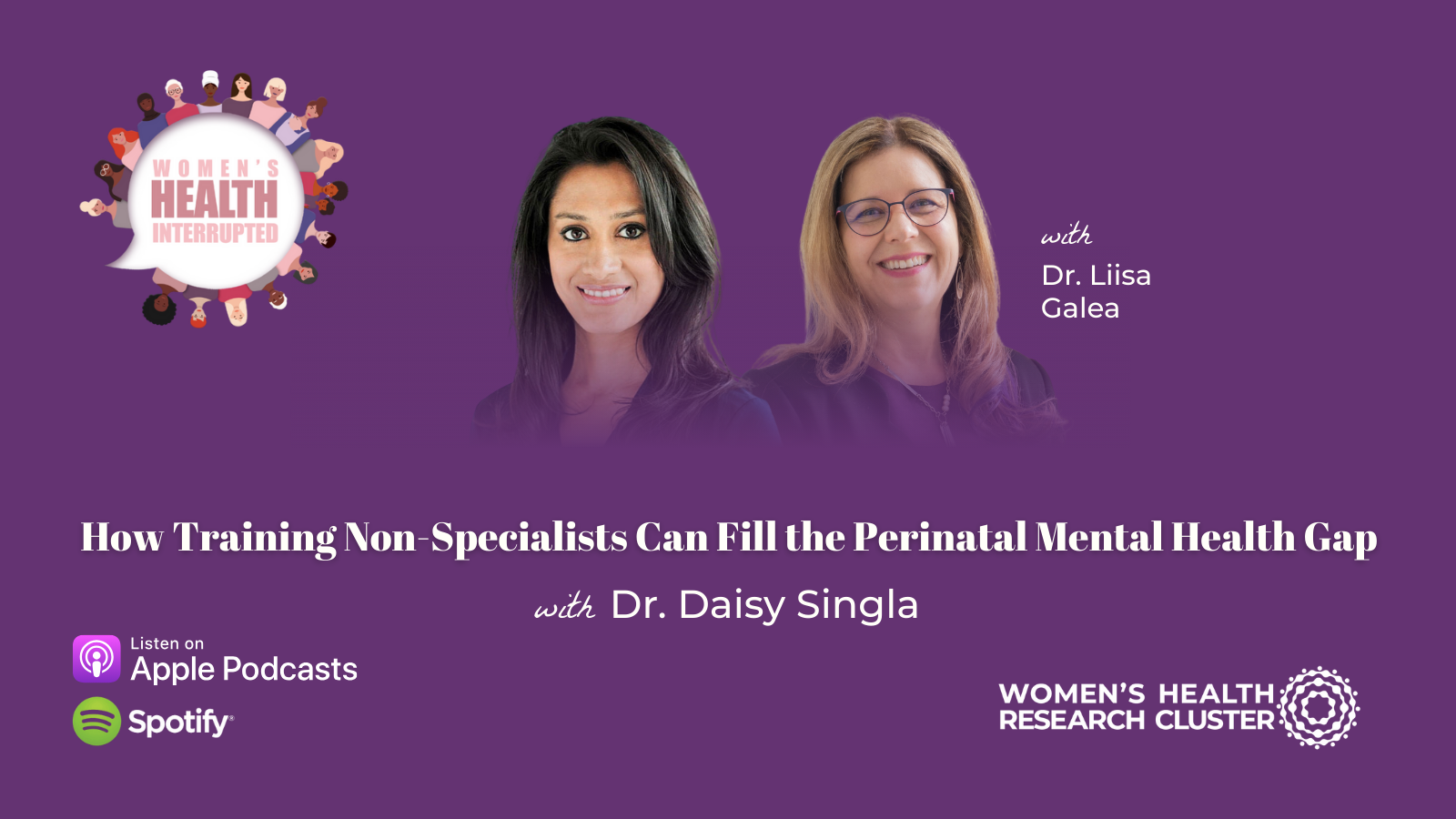
S3E10: How Training Non-Specialists Can Fill the Perinatal Mental Health Gap with Dr. Daisy Singla
Learn More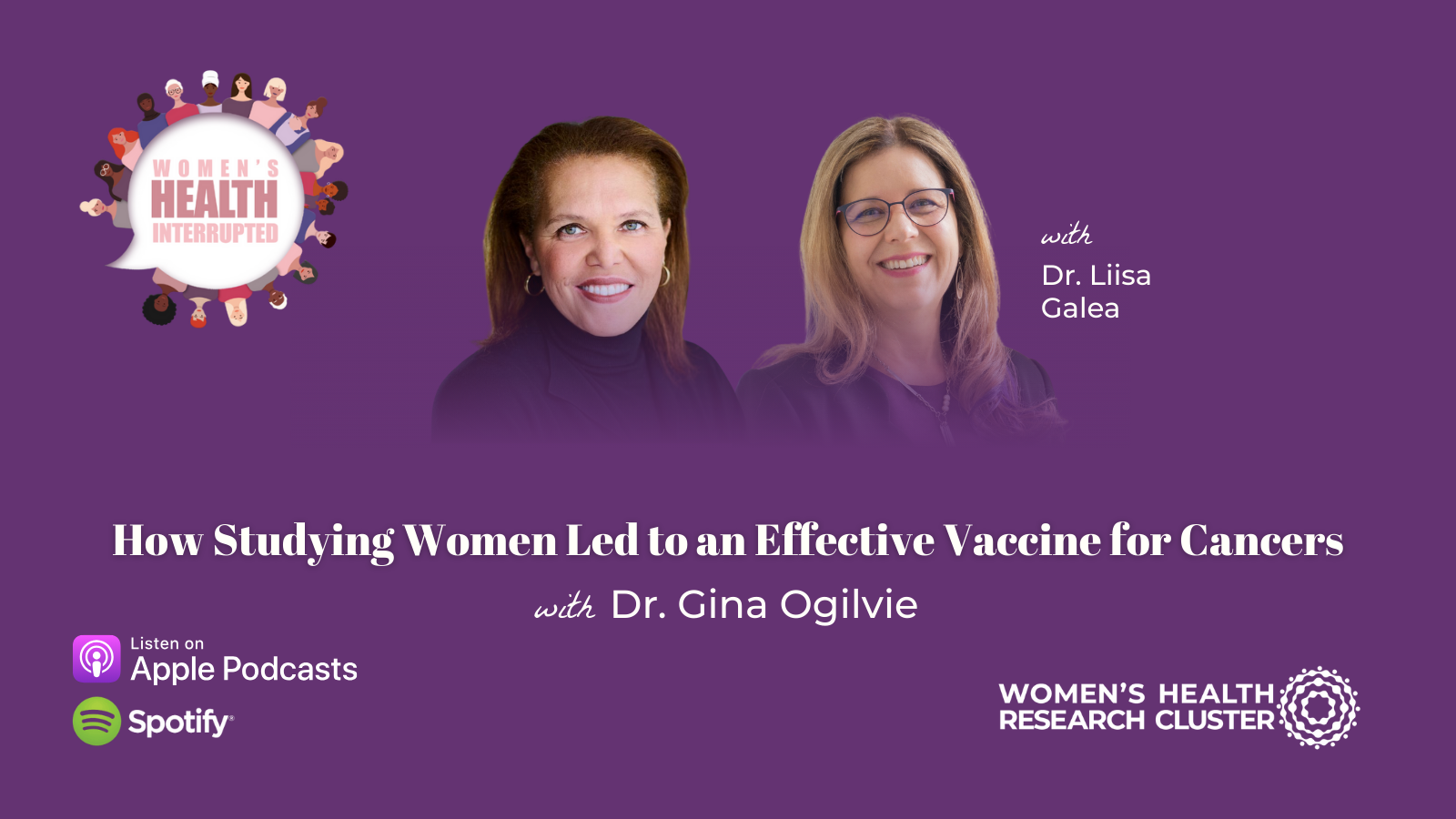
S3E9: How Studying Women Led to an Effective Vaccine for Cancers with Dr. Gina Ogilvie
Learn More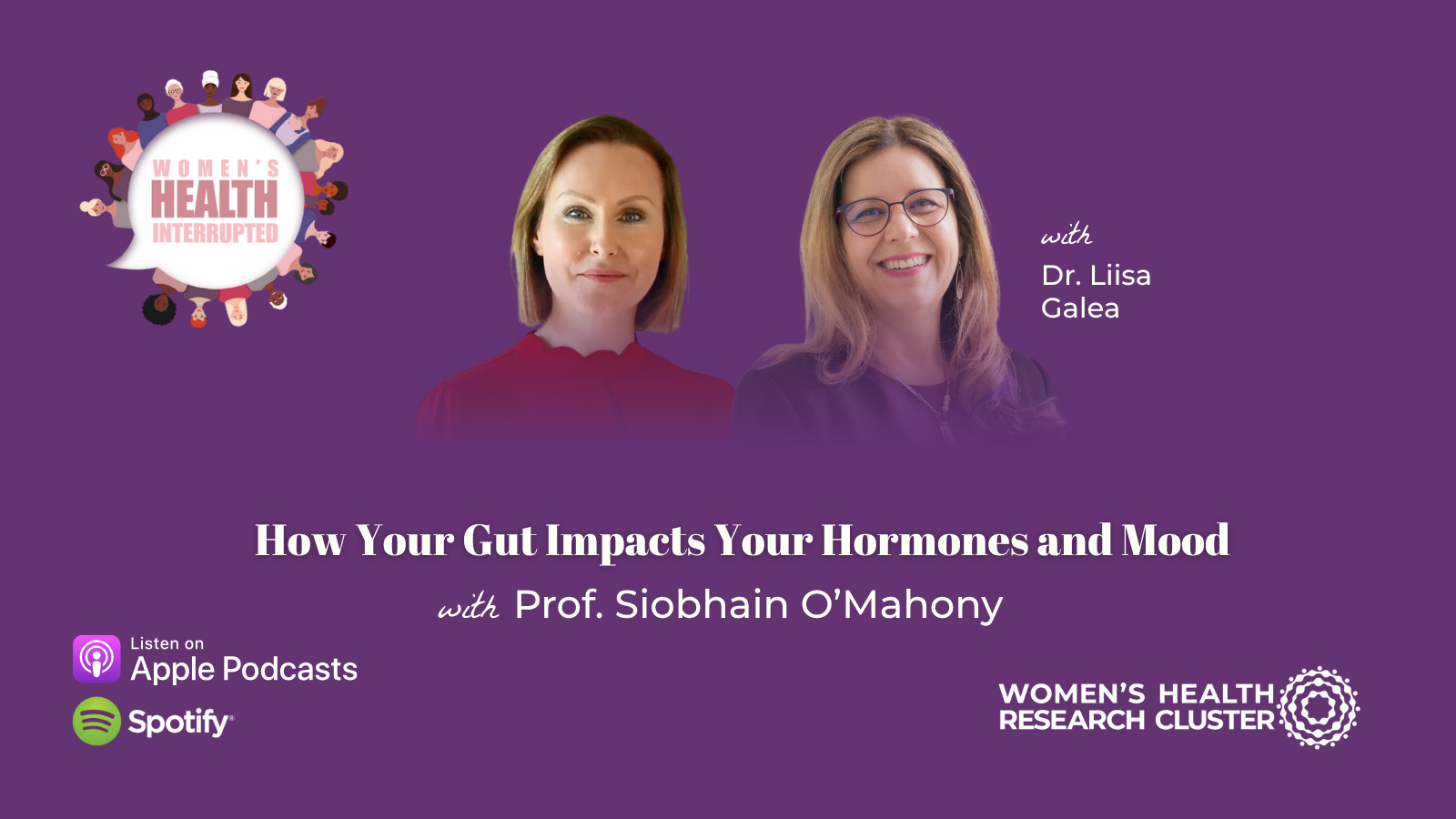
S3E7: How Your Gut Impacts Your Hormones and Mood with Prof Siobhain O’Mahony
Learn More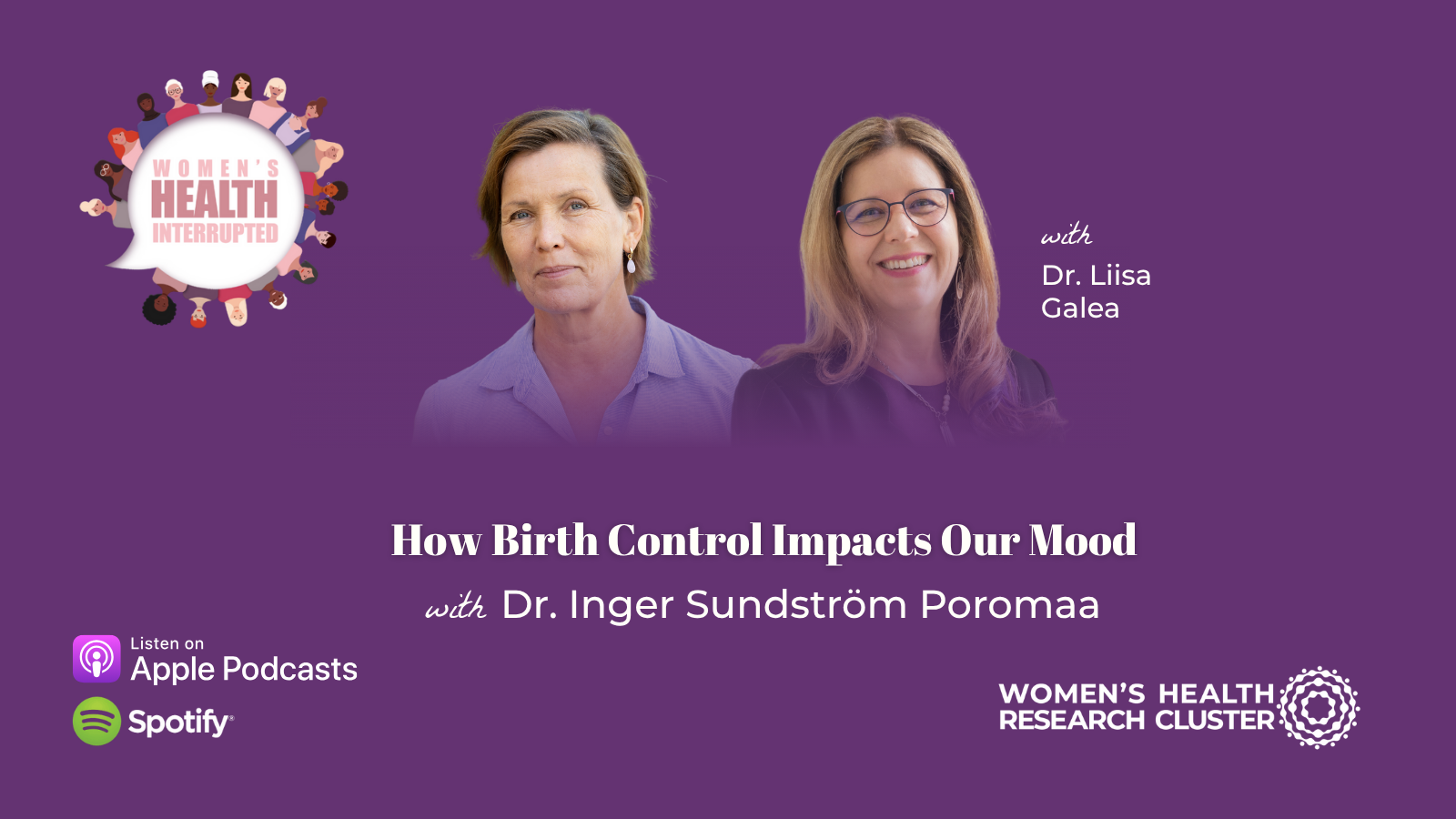
S3E5: How Birth Control Impacts Our Mood with Dr. Inger Sundström Poromaa
Learn MoreNewsletter Signup
Keep up to date with the Women’s Health Research Cluster



